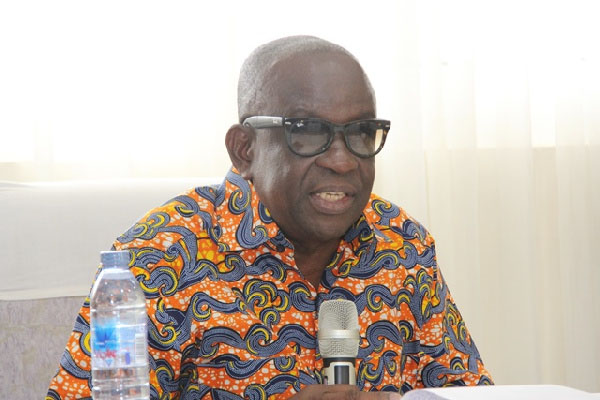Albert Kan Dapaah
THE NATIONAL Security Minister, Albert Kan-Dapaah, has expressed worry over what he termed ‘political intolerance’ which is gradually gaining grounds in the country.
He has therefore, called on Ghanaians to tolerate each other irrespective of their political differences.
He said if such canker was not addressed, that could plunge the country in chaos in future.
“Political tolerance and consensus building remain critical ingredients to the future political culture of this country,” he emphasised.
He made this known at the opening of a 3-day national stakeholders’ dialogue organised by the National Peace Council, in collaboration with the Commonwealth Secretariat, at Ada in the Eastern Region.
The stakeholders’ dialogue was under the theme, “Countering post-2020 election violence & peace building consensus for greater political tolerance in Ghana”.
It was attended by representatives of the various political parties, representatives of faith-based organisations, government officials and some international partners.
Mr. Kan-Dapaah continued that it was important for all to realise that political violence played a remote role in civil conflict breeding.
“Talk about chieftaincy disputes, inter ethnic rivalries, talk about land ownership disputes. Political party rivalries and political extremism all have political undertones and have led to politically motivated violence across our country,” he noted adding that “As a country, we must tackle this. We must seek better and improved ways to build national and social cohesion and establish mutual trust between the government and the citizens, while building a national spirit of peaceful coexistence and security across the Ghanaian society”
The Minister maintained that the promulgation of the 1992 constitution has led to a democratic journey that have seen power transfers between an incumbent government and the opposition party on three occasions in 2001, 2009 and 2016.
However, he revealed that elections in Ghana have never been without pockets of violence.
“We have not experienced full scale conflicts and atrocities in any forms of electoral violence that we have witnessed in some African countries yet. But this should not deceive us into believing that we are all safe,” he added.
Minister of Information, Kojo Oppong Nkrumah said Ghanaian politicians were often too suspicious of each other especially when there is an impending elections.
He said “We always think someone is scheming and plotting to steal and most of the time, these allegations turn out to be baseless, and if not handled with care, could inflame passions and tension unnecessarily. The slightest trigger then causes violence.”
Chairman of the governing board of the National Peace Council, Rev Dr Ernest Adu–Gyamfi, in an address, said to move beyond collective pain to a place of healing, “We must begin to address how our division on partisan lines is affecting the peace, stability, and development of Ghana”.
“It is our highest expectation that this national conference will contribute enormously to healing the wounds that were created because of the violence before, during and after the 2020 elections.
“This carefully thought-through national dialogue is not designed to rehearse the past, but to use it to navigate our way as a people to ensure that the unfortunate recurrence of unnecessary tensions, threats of violence and destructions of lives and property, before, during and after elections in the country are eliminated.”
He therefore urged participants to make it a ‘solution oriented’ event.
Also present were Patricia Scotland, the Commonwealth Secretary General; Dr Angela Lusigi, the UNDP representative to Ghana; Dr Mohammed Ibn Chambas, former Special Representative and Head of the United Nations Office for West Africa (UNOWA), among other dignitaries.
BY Linda Tenyah-Ayettey
.


